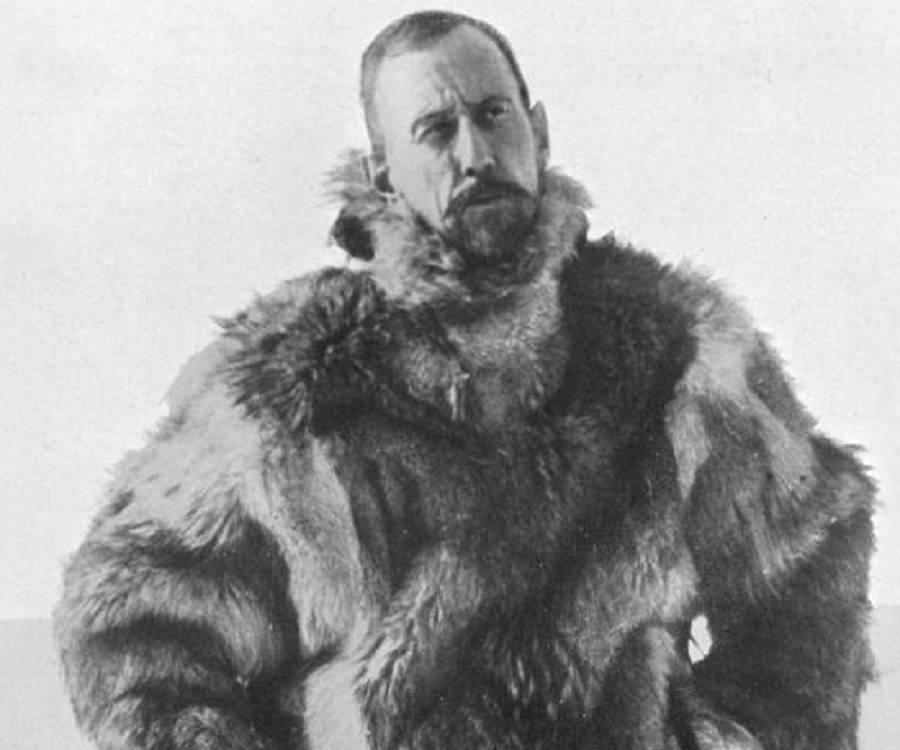On this Day in History
Scroll to see replies
Original post by ageshallnot
Oh god, not again! Hopefully this is your last attempt to ruin this thread until the final surrender?
6th Army did surrender not too long after, in early February.
Supplies were scarce, the men were exhausted, starving etc.
At this rate we're in the final stand of the 6th Army.
13th January
1943: The Ostrogozhsk–Rossosh offensive has started.
It would tear through the Hungarian army, encircle and basically destroy it. After that, not only was 2nd German Army's flank exposed, but also Army Group South was still vulnerable to a deep thrust to the Sea of Azov, which would encircle Army Group A and Don. That would also have dislocated Army Group B severely.
Unfortunately the Soviets were way too cautious during this. They decided to attack 6th Army even though it didn't have the strength to retreat from late October, which needlessly tied up Soviet troops.
https://kansaspress.ku.edu/samples/chapters/9780700619542.pdf from p8 to p11, Glantz illustrates how hopeless 6th Army was, even in early October.
https://kansaspress.ku.edu/samples/chapters/9780700619559.pdf preface xvii, p6-8, Glantz illustrates that 6th Army would be reduced to an "ineffective mass of refugees on the snow" had 6th Army attempted a breakout.
This irrational and exaggerated Soviet fear of a breakout or retreat, even when it was unwarranted from October, ultimately tied down enough troops to the point that the offensive couldn't breakthrough to the Sea of Azov.
1943: The Ostrogozhsk–Rossosh offensive has started.
It would tear through the Hungarian army, encircle and basically destroy it. After that, not only was 2nd German Army's flank exposed, but also Army Group South was still vulnerable to a deep thrust to the Sea of Azov, which would encircle Army Group A and Don. That would also have dislocated Army Group B severely.
Unfortunately the Soviets were way too cautious during this. They decided to attack 6th Army even though it didn't have the strength to retreat from late October, which needlessly tied up Soviet troops.
https://kansaspress.ku.edu/samples/chapters/9780700619542.pdf from p8 to p11, Glantz illustrates how hopeless 6th Army was, even in early October.
https://kansaspress.ku.edu/samples/chapters/9780700619559.pdf preface xvii, p6-8, Glantz illustrates that 6th Army would be reduced to an "ineffective mass of refugees on the snow" had 6th Army attempted a breakout.
This irrational and exaggerated Soviet fear of a breakout or retreat, even when it was unwarranted from October, ultimately tied down enough troops to the point that the offensive couldn't breakthrough to the Sea of Azov.
Original post by justlearning1469
13th January
1943: The Ostrogozhsk–Rossosh offensive has started.
It would tear through the Hungarian army, encircle and basically destroy it. After that, not only was 2nd German Army's flank exposed, but also Army Group South was still vulnerable to a deep thrust to the Sea of Azov, which would encircle Army Group A and Don. That would also have dislocated Army Group B severely.
Unfortunately the Soviets were way too cautious during this. They decided to attack 6th Army even though it didn't have the strength to retreat from late October, which needlessly tied up Soviet troops.
https://kansaspress.ku.edu/samples/chapters/9780700619542.pdf from p8 to p11, Glantz illustrates how hopeless 6th Army was, even in early October.
https://kansaspress.ku.edu/samples/chapters/9780700619559.pdf preface xvii, p6-8, Glantz illustrates that 6th Army would be reduced to an "ineffective mass of refugees on the snow" had 6th Army attempted a breakout.
This irrational and exaggerated Soviet fear of a breakout or retreat, even when it was unwarranted from October, ultimately tied down enough troops to the point that the offensive couldn't breakthrough to the Sea of Azov.
1943: The Ostrogozhsk–Rossosh offensive has started.
It would tear through the Hungarian army, encircle and basically destroy it. After that, not only was 2nd German Army's flank exposed, but also Army Group South was still vulnerable to a deep thrust to the Sea of Azov, which would encircle Army Group A and Don. That would also have dislocated Army Group B severely.
Unfortunately the Soviets were way too cautious during this. They decided to attack 6th Army even though it didn't have the strength to retreat from late October, which needlessly tied up Soviet troops.
https://kansaspress.ku.edu/samples/chapters/9780700619542.pdf from p8 to p11, Glantz illustrates how hopeless 6th Army was, even in early October.
https://kansaspress.ku.edu/samples/chapters/9780700619559.pdf preface xvii, p6-8, Glantz illustrates that 6th Army would be reduced to an "ineffective mass of refugees on the snow" had 6th Army attempted a breakout.
This irrational and exaggerated Soviet fear of a breakout or retreat, even when it was unwarranted from October, ultimately tied down enough troops to the point that the offensive couldn't breakthrough to the Sea of Azov.
Please. Just. Stop. You are ruining this thread with your personal obsessions.
12th January
1943: The Soviets destroyed 6th Army west of the Rossoschka river during Operation Ring, smashing through Paulus' western front.
Actually, the Soviets almost managed that on Dec 8. 21st Army had a significant penetration which was barely held off by Paulus.
Had Soviets been even slightly more competent, for instance being less cautious, it was possible to destroy 6th Army west of the Rossoschka river, though with a significant amount of losses.
However, it would've freed up 21st Army as a reserve. That could've been used instead of 2nd Guards Army to stop Winter Storm.
21st Army was not too strong, but considering how 2nd Guards Army almost encircled the whole relief force, and was actively attacking, it's plausible that Winter Storm could've been stopped by 21st Army.
Using 2nd Guards Army allows Operation Saturn to be carried out. This leads to the dislocation of Army Group B, as well as encircling and destroying Army Group D and A.
That means we have Soviets crossing the Dnieper in late January/early Feb instead of OTL mid-September. It would shorten the war by a year.
Unfortunately, Soviet cautiousness needlessly delayed the war.
1943: The Soviets destroyed 6th Army west of the Rossoschka river during Operation Ring, smashing through Paulus' western front.
Actually, the Soviets almost managed that on Dec 8. 21st Army had a significant penetration which was barely held off by Paulus.
Had Soviets been even slightly more competent, for instance being less cautious, it was possible to destroy 6th Army west of the Rossoschka river, though with a significant amount of losses.
However, it would've freed up 21st Army as a reserve. That could've been used instead of 2nd Guards Army to stop Winter Storm.
21st Army was not too strong, but considering how 2nd Guards Army almost encircled the whole relief force, and was actively attacking, it's plausible that Winter Storm could've been stopped by 21st Army.
Using 2nd Guards Army allows Operation Saturn to be carried out. This leads to the dislocation of Army Group B, as well as encircling and destroying Army Group D and A.
That means we have Soviets crossing the Dnieper in late January/early Feb instead of OTL mid-September. It would shorten the war by a year.
Unfortunately, Soviet cautiousness needlessly delayed the war.
(edited 2 years ago)
Original post by ageshallnot
Please. Just. Stop. You are ruining this thread with your personal obsessions.
To be fair the Soviets really did miss a glaring opportunity.
Though that offensive was still successful enough to achieve its objectives.
Unfortunately, couldn't exploit towards the Sea of Azov because too many were needlessly tied down around Stalingrad.
(edited 2 years ago)
14th February 1779
Captain Cook, British explorer, navigator and cartographer, was stabbed to death on the beach at Kealakekua (Hawaii) by the Polynesian natives.
Captain Cook and Endeavour.
Cook set sail in one of the greatest voyages of discovery of all time with nearly 100 men including astronomers, artists and scientists.
Captain Cook, British explorer, navigator and cartographer, was stabbed to death on the beach at Kealakekua (Hawaii) by the Polynesian natives.
Captain Cook and Endeavour.
Cook set sail in one of the greatest voyages of discovery of all time with nearly 100 men including astronomers, artists and scientists.
Original post by NJA
14th February 1779
Captain Cook, British explorer, navigator and cartographer, was stabbed to death on the beach at Kealakekua (Hawaii) by the Polynesian natives.
Captain Cook and Endeavour.
Cook set sail in one of the greatest voyages of discovery of all time with nearly 100 men including astronomers, artists and scientists.
Captain Cook, British explorer, navigator and cartographer, was stabbed to death on the beach at Kealakekua (Hawaii) by the Polynesian natives.
Captain Cook and Endeavour.
Cook set sail in one of the greatest voyages of discovery of all time with nearly 100 men including astronomers, artists and scientists.
Rather a shame really, fascinating man who actually cared about the natives.. unlike his successors.
Interestingly enough, theyve *possibly* just found his ship in thew US.
21st February
1613: Michael Romanov, son of Patriarch of Moscow, elected first Russian Tsar of the house of Romanov

1613: Michael Romanov, son of Patriarch of Moscow, elected first Russian Tsar of the house of Romanov

Saint Thomas Becket was canonized by Pope Alexander III on 21 Februaary 1173.
Becket was the Archbishop of Canterbury and murdered in Canterbury Cathedral during the reign of King Henry II.
Feast day 29 December, he died 29 December 1170.
Becket was the Archbishop of Canterbury and murdered in Canterbury Cathedral during the reign of King Henry II.
Feast day 29 December, he died 29 December 1170.
6th March
1869: Dmitri Mendeleev presents the first periodic table of the elements to the Russian Chemical Society

1869: Dmitri Mendeleev presents the first periodic table of the elements to the Russian Chemical Society

7th March
1912: Roald Amundsen announces his discovery of the South Pole (located 14 December 1911)

1912: Roald Amundsen announces his discovery of the South Pole (located 14 December 1911)

Original post by vapordave
6th March
1869: Dmitri Mendeleev presents the first periodic table of the elements to the Russian Chemical Society

1869: Dmitri Mendeleev presents the first periodic table of the elements to the Russian Chemical Society

Underrestimated chemist in my opinion. His periodic table gave the structure for the elements long before the most of them were known.
@5hyl33n thought it may interests you.
8th March
2014: Malaysia Airlines Flight MH370 with 239 people loses contact and disappears, prompting the most expensive search effort in history and one of the most enduring aviation mysteries.

2014: Malaysia Airlines Flight MH370 with 239 people loses contact and disappears, prompting the most expensive search effort in history and one of the most enduring aviation mysteries.

9th March
1961: Soviet flight Sputnik 9 carries and returns from orbit a dog named Chernushka (Blackie), frogs and a guinea pig
1961: Soviet flight Sputnik 9 carries and returns from orbit a dog named Chernushka (Blackie), frogs and a guinea pig
15th March, 44 BC:
The Roman dictator Gaius Julius Caesar was assassinated (Ides of March). He was stabbed to death by members of the Senate. It is said that there were 60 conspirators involved and led by Brutus and Cassius.

The Roman dictator Gaius Julius Caesar was assassinated (Ides of March). He was stabbed to death by members of the Senate. It is said that there were 60 conspirators involved and led by Brutus and Cassius.

19 March 2014-
Fred Waldron Phelps Sr, founder of the infamous WBC died.
Fred Waldron Phelps Sr, founder of the infamous WBC died.
Original post by londonmyst
19 March 2014-
Fred Waldron Phelps Sr, founder of the infamous WBC died.
Fred Waldron Phelps Sr, founder of the infamous WBC died.
Not really a likeable human after what I found out. Homophobia is a thing I can't tolerate, faith or not.
Original post by Kallisto
Not really a likeable human after what I found out. Homophobia is a thing I can't tolerate, faith or not.
The horrifying vitriol directed at homosexuals was just the tip of the iceburg for Phelps snr and his WBC cult group.
Other targets included: deceased american military personnel KIA, September 11 victims, catholics, mormons, jews, hindus, all mainstream churches and any fundamentalist christian groups who disagreed with his revolting language & inflammatory style of protesting while agreeing with his theology.
Apparently towards the end of his life, Phelps had a visit from his conscience and realised too late that he had started a fire that he would never be able to extinguish or even keep within his control as regards targeted direction & scale of damage.
His successors within the WBC senior leadership are even worse than him.
30th March, 1856:
The treaty of Paris in 1856 brought an end to the Crimean War between the Ottoman Empire, Great Britain, Russian Empire, Second French Empire and Kingdom of Sardinia.
As we can see history repeats itself.

The treaty of Paris in 1856 brought an end to the Crimean War between the Ottoman Empire, Great Britain, Russian Empire, Second French Empire and Kingdom of Sardinia.
As we can see history repeats itself.

Quick Reply
Related discussions
- Holding myself accountable; study!
- Yr 13 study journal/gyg 2024
- Studying history at uni, clearing options
- Has King's College had History in clearing before?
- Need help immediately. - SQA HIGHER 2024.
- Oxford History Offer holders 2024
- UCL History offer holders 2023
- IGSCE History
- My attempt at not sabotaging my future career!
- No study leave for GCSEs - advice??
- Best university for history
- Journey of a future Law student⚖️
- Official Bishop Grosseteste University Applicant Thread for 2024
- Thinking of applying for English Literature and History combined degree at LJMU
- Wanting to apply for Literature and History combined degree at UEA
- Gcse AQA HiSTORY POWER AND PEOPLE
- Official University of Winchester Applicant Thread for 2024
- year 13 gyg journal : trying not to become an academic victim 🤡📖
- MSc Financial History at LSE
- Not sure about what uni course to apply to
Latest
Posted 28 minutes ago
Should I accept my offer at LCF or wait another year and apply for CSM again?Last reply 39 minutes ago
Virgin/O2 Technology Placement - Virtual Assessment and embarrassing questionLast reply 45 minutes ago
Official London School of Economics and Political Science 2024 Applicant ThreadLast reply 52 minutes ago
What games did everybody play on their computers at school or when they were youngerGaming
11
Last reply 1 hour ago
Official University of St Andrews Applicant Thread for 2024Last reply 1 hour ago
Official Veterinary Medicine Applicants thread 2024 entryTrending
Last reply 12 hours ago
Why is the political left now censorious and authoritarian??Last reply 15 hours ago
Is it true that British unis are prejudiced towards degrees from Scottish unis?Last reply 17 hours ago
If the Russell Group was now a fair representation of what it still claims to beLast reply 1 week ago
TSR Goes Green: How important will the environment be in this year's election?Last reply 2 weeks ago
Research Rankings of universities if you add Research Quality & Intensity percentagesLast reply 1 month ago
Is University of Birmingham prestigious and respected well enough in UK ?Trending
Last reply 12 hours ago
Why is the political left now censorious and authoritarian??Last reply 15 hours ago
Is it true that British unis are prejudiced towards degrees from Scottish unis?Last reply 17 hours ago
If the Russell Group was now a fair representation of what it still claims to beLast reply 1 week ago
TSR Goes Green: How important will the environment be in this year's election?Last reply 2 weeks ago
Research Rankings of universities if you add Research Quality & Intensity percentagesLast reply 1 month ago
Is University of Birmingham prestigious and respected well enough in UK ?



